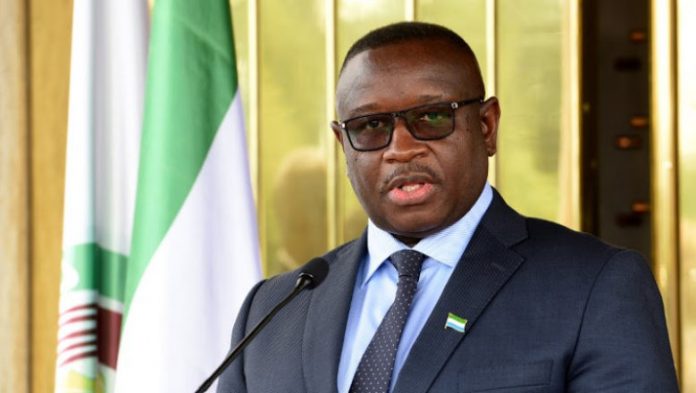By Amin Kef Sesay
The other day, The Calabash was speaking with a fellow Sierra Leonean living in the USA about the reason why so many of strong, energetic, bright enterprising youths of both sexes are risking their lives daily to use the back door to Europe and other greener pastures across the developed and not so developed parts of the world.
We were passing by an ‘Ataya’ bar where over twenty youths at a time of the day should have been busy with work sat chatting about various topics of the day.
You see all those guys over there, he pointed, if you ask any of them now what they want most they would reply that they want to leave Sierra Leone for elsewhere. Ask them further, he added why, they would reply that they are tired of being idle and unproductive.
However much we try to sweep the matter under the carpet or pretend that it does not exist, the greatest stumbling to poverty reduction and its ultimate elimination in the country is that of how to create meaningful jobs that all to both personal and national development for the over 40 percent of young people that fall under the demographic classification of youth.
Data is not readily available from the Ministry of Labor and Statistics Sierra Leone about the number of young people that have passed the age of 18 that are unemployed. We can however safely guess that over 60 percent, to be on the safe side, are either unemployed or underemployed – meaning that they earn and live on less that Le20, 000 ($2) a day. The man from USA thus stated that, at the head of the country’s development crisis is how the economic system can over the next five to ten years create for a start at least 500, 000 well paid jobs for youths as a big leap forward in addressing the perennial problem of poverty reduction.
So this brings this discussion round to the issue of what are the economic, social and cultural rights of a people in general, and why the provision of these by the state and its development partners make the difference between development and underdevelopment?
According to the United Nations, economic, social, and cultural rights include the human right to work, the right to an adequate standard of living, including food, clothing, and housing, the right to physical and mental health, the right to social security, the right to a healthy environment, and the right to education.
From a human rights perspective, these rights are part of the body of human rights law that developed in the aftermath of World War II. They include all economic and social rights, as well as civil and political rights like the right to free speech and the right to a fair trial.
For example, the man from USA said that the right to speak freely means little without a basic education, the right to vote means little if you are suffering from starvation. Similarly, the right to work means little if you are not allowed to meet and assemble in groups to discuss work conditions.
Thus, the man from USA stated that until our government fundamentally and profoundly recognizes that human beings deserve to live in freedom, justice, dignity and economic security, the issue of poverty will remain glaring wherever we look.
Poverty and injustice are neither inevitable nor natural, but arise from deliberate decisions and policies, and the human rights legal framework provides a way to hold public officials accountable for development policies and priorities.
He gave as example the Chinese government which for the past fifty years has designed concrete policies, programs and projects specifically geared towards not only poverty reduction but improving on human welfare including education, housing, health and employment.
As such, in the effort to develop, economic and social rights require government and other powerful actors to ensure that people have first and foremost, opportunities for gainful employment in order to be able to provide for themselves their basic needs.




